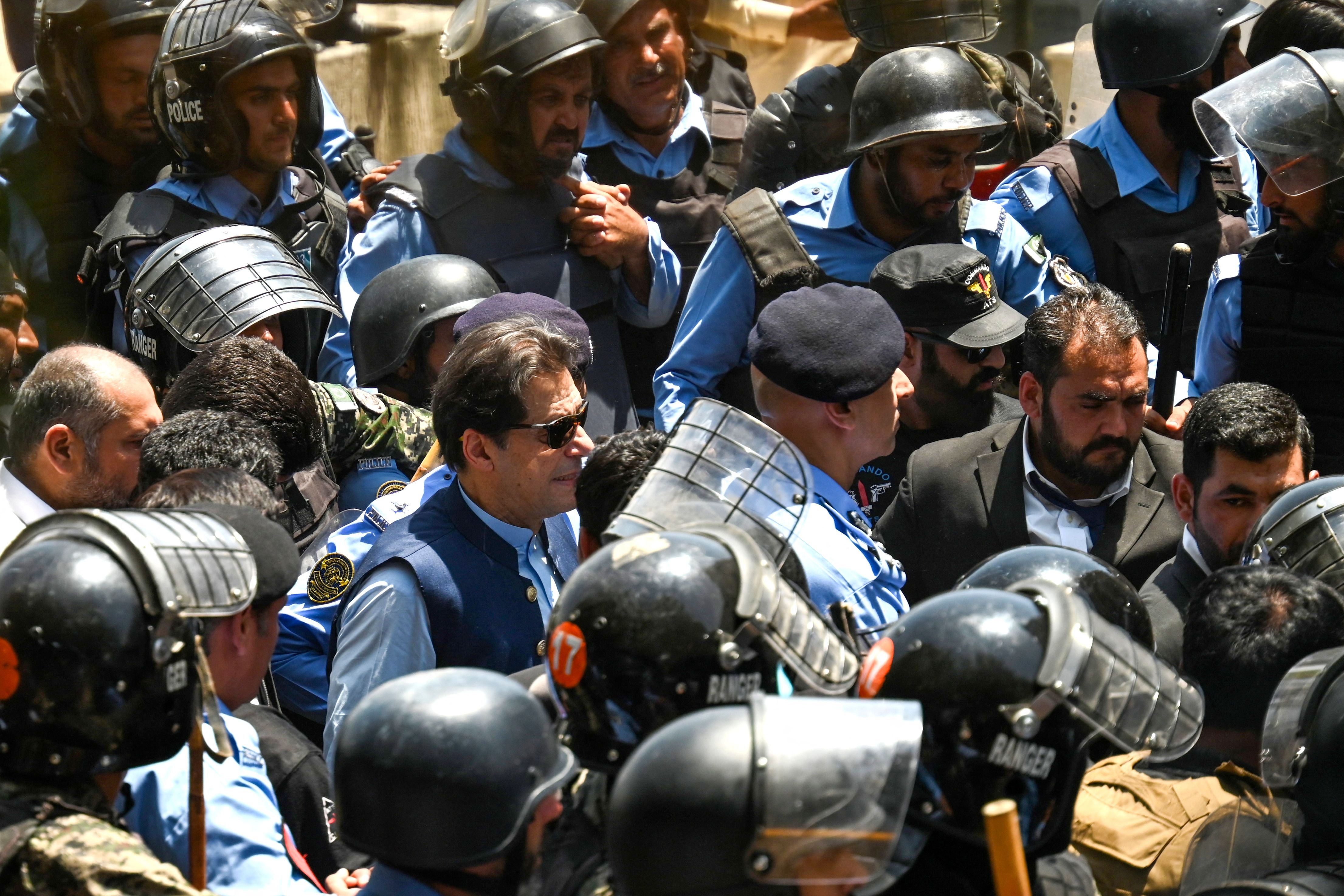Pakistan sacks three senior army officers and tries more than 100 people over violent May protests
Army says all ‘planners and facilitators’ of violent protests will be punished

Officials in Pakistan have fired three senior army officers for failing to prevent the violent clashes last month in the wake of the arrest of former prime minister Imran Khan, an army spokesperson said on Monday.
At least 102 people were being tried in Pakistan’s military court over the widespread protests, army spokesperson Ahmad Sharif Chaudhry said.
Mr Chaudhry said all “planners and facilitators” of the violent protests will be punished, no matter which institution or office they belonged to.
Another 15 officers, including major generals and brigadiers, are also facing strict departmental action, he said without detailing the punitive measures. The punishments have been ordered after two separate army inquiries were completed into the violent protests, the army spokesperson said.
Thousands of supporters of Mr Khan attacked army installations after he was arrested on graft allegations on 9 May. At least 10 people died in the violent clashes in Islamabad and more than 4,000 people were arrested.
The high-voltage protests also saw police clashing with Mr Khan’s supporters after his Pakistan Tehreek-e-Insaf (PTI) party urged them to “shut down Pakistan” in protest.
Hundreds blocked streets in Lahore, where police were been put on high alert.
The protests targeted several military installations, including an air base, several cantonments, the house of a general and the army’s headquarters after Mr Khan was dragged out of a courtroom and detained.
Mr Khan was giving his biometric data in a room inside the Islamabad High Court when officers dressed in riot gear stormed the building, smashing windows to gain access in dramatic scenes captured on video by Mr Khan’s aides.
His supporters also torched buildings and vehicles and attacked police and military personnel and facilities.
Mr Khan was released shortly after by the orders of Pakistan’s Supreme Court which criticised the way he was arrested.
The 70-year-old crickter-turned-politician was ousted from power in a no-confidence vote in parliament last year and is currently facing more than 100 cases, mainly on charges of inciting people to violence, threatening officials, and defying a ban on rallies.
He also faces a graft case along with his wife.
After he was ousted from office, Mr Khan has been subject to at least one failed assassination attempt which, he told The Independent in an interview in March, left him with lasting nerve damage. PTI officials alleged that paramilitary officers deliberately targeted his wounded leg during the last month’s arrest.
Mr Khan accuses the government and the country’s security agencies of being behind the attempt on his life, a charge which both have denied.
With a consistent history of military takeovers, Pakistan has seen political upheaval and social unrest. Mr Khan is the seventh prime minister to be arrested since 1977.
The turmoil came at the time when Pakistan is struggling with a dire economic situation, a spike in militancy, and the impact of last year’s catastrophic floods. This grimness is unlikely to be addressed or resolved soon, further straining living conditions and security for the 220-million population.
Join our commenting forum
Join thought-provoking conversations, follow other Independent readers and see their replies
Comments
Bookmark popover
Removed from bookmarks